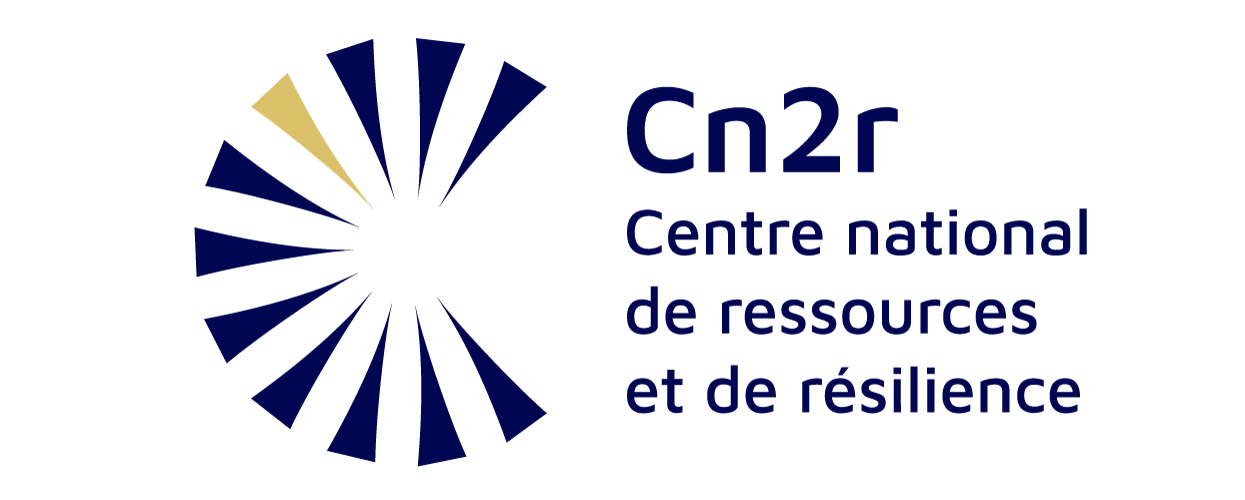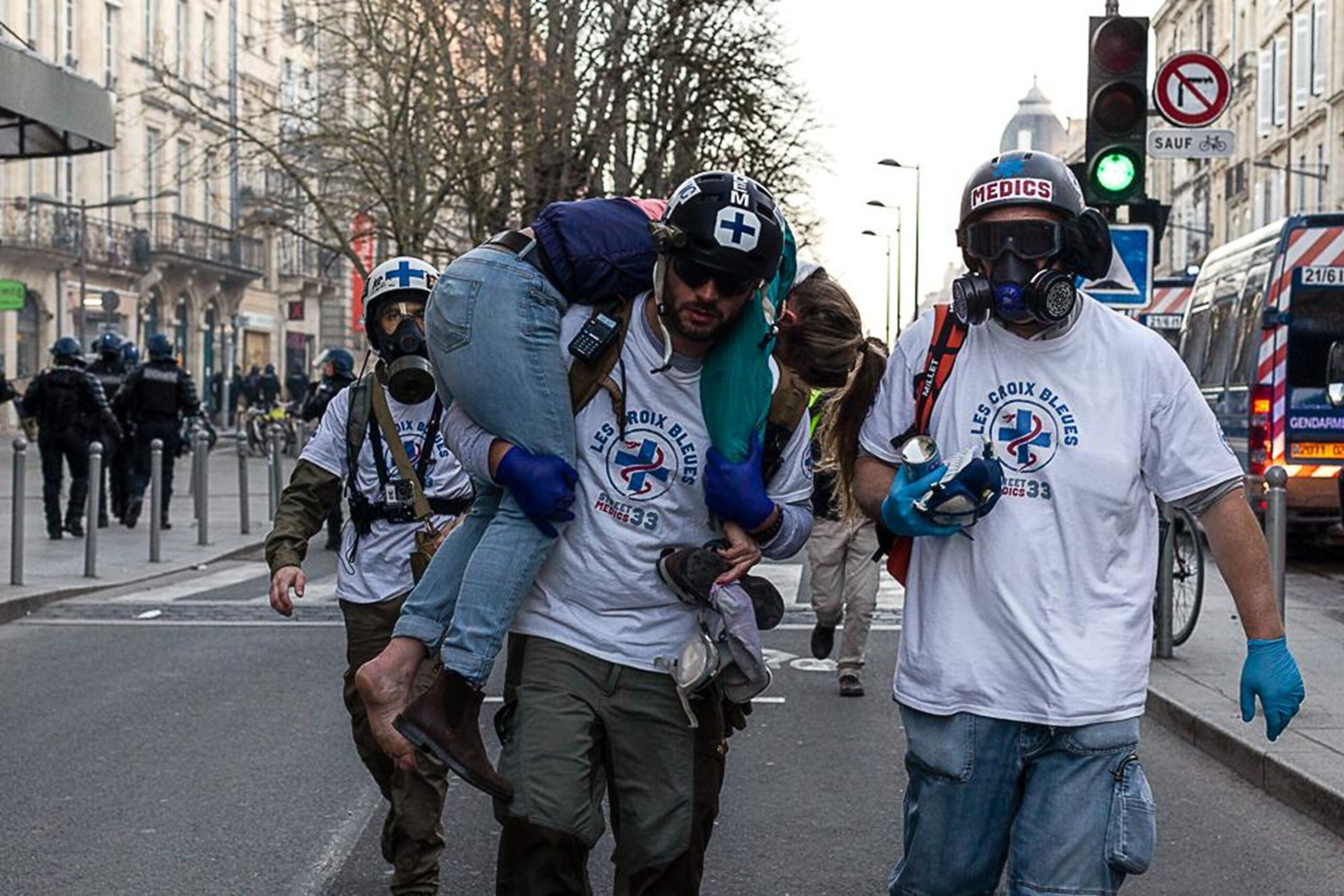Pension reform: can violent demonstrations cause post-traumatic stress disorder?
We've heard of street-medics, but now "street-psys" intervene at demonstrations to provide help and prevention for protesters. In early April, a psychological support unit was set up by the organizers of the protests against the "mega-basins" in Sainte-Soline. What risk factors are present during these demonstrations? And how can we prevent the onset of post-traumatic stress disorder (PTSD) in such cases?
"Militants are people we don't see very often. Because they say to themselves ' we have to be strong, we're fighting'. But any demonstration can be traumatic depending on the person," begins Lauriane Perez, a clinical psychologist in private practice in the Nantes area. Since the Gilets Jaunes crisis, she's been taking a close interest in TPST among protesters who are victims or witnesses of violence. "At the time, I was contacted by street-medics who were looking for a "safe" psychologist to talk about these issues because they were spotting a lot of very shocked people after rallies," explains the psychologist.
While physical violence is regularly denounced in the press, psychological violence is much less so. Yet they can leave their mark. "We can detect a number of psychological disorders, such as anxiety, phobias and guilt, when activists can no longer continue demonstrating," observes the psychologist. "As soon as there's violence, it's a risk factor. All the more so for activists who regularly take part in demonstrations - as was the case with the Gilets Jaunes - and who reactivate their trauma each time."
The demonstrations "present a number of risk factors": the sudden nature of the event, intense stimuli (such as the sound of disencrypting grenades), confrontation with the reality of death via the danger of physical harm... "That's why it's important to be prepared, because trauma is associated with something sudden. That's why it's important to be prepared, because trauma is associated with something sudden. You need tosurround yourselfwith resource people to be able to support each other. Allow yourself to withdraw if you feel overwhelmed, even if it means coming back later. Set aside some time after the demonstration to debrief in peace and quiet, avoid watching images of the protests over and over again, and of course seek help if it goes on too long," continues the clinician.
Sainte-Soline: warning even before the demonstration
Nevertheless, this risk is increasingly taken into account in militant circles. For example, during the demonstration against the Sainte-Soline mega-pond at the end of March, the organizers set up a psychological support unit before the event.
"Many are in shock because they've been through a very dehumanized ordeal of violence. So we start by putting them back into a human context: listening to their experiences, within a safe framework and in a relationship of trust", one of the members of this unit explained to Reporterre journalists in the field.
The unit provided an initial reception and listening service during the demonstration, and continued its work by setting up a telephone hotline. In the first few days after the event, the team received around 50 calls from people in "urgent psychological distress".
"Many people have flashbacks of images of the injured. They're reliving their experience because they see it as complete nonsense," explains one of the clinical psychologists to Reporterre, who expects "a wave of post-traumatic stress sufferers".
- Acute or post-traumatic stress? Acute stress disorder can occur immediately after a traumatic event. PTSD occurs when symptoms last longer than a month. That's why, in the days following the traumatic event, it's vital to surround yourself with others and talk about what happened, to limit the risk of developing PTSD.
A spectacular rise in PTSD in Hong Kong
Published in 2020 in the journal The Lancet, a study looked at PTSD in Hong Kong, in the context of popular mobilization for more democracy, which has been marred by numerous incidents of police violence. The mental health of 18,000 people was studied between 2009 and 2019, on a regular basis.
The authors point out that almost a third of Hong Kong adults showed signs of PTSD since the start of the mobilization, compared with just 5% in 2015. Regular consultation of social networks to learn about the mobilization would be an additional risk factor.
"At a time when social unrest is on the rise all over the world, and particularly in major cities such as Barcelona, Delhi, Paris and Santiago in 2019, the question of the impact of social unrest on the mental health of populations has become a very important public health issue", one of the study's co-directors, Michael Ni, from the University of Hong Kong, told AFP.
- Find out more about PTSD on our " Understanding psychotrauma" page. If you think you may be suffering from PTSD, talk to your GP and contact the regional psychotrauma centers (CRP). To find your nearest CRP, go to our " Locating care facilities" page.
- Watch Eloïse Bajou's column on LeMediaTV: " Health self-defense: avoiding psycho-trauma during demonstrations"



